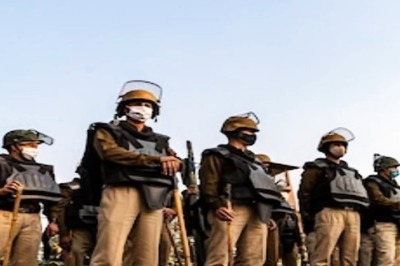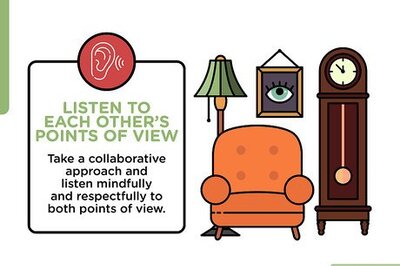
views
New Delhi: India's online retailers are bulking up on acquisitions and funding as they battle the world's biggest Internet shopping giant, Amazon, for supremacy in the hyper-competitive domestic market.
Late last month, Flipkart, India's largest e-shopping portal, announced the takeover of rival Myntra in a deal analysts estimated at $330 million - the largest of a string of transactions in the sector over the past two years.
"With Amazon entering the fray, it's forcing domestic players to get critical mass to compete," Ashish Jhalani, founder of Indian consultancy eTailing, told AFP.
"It's still a fragmented sector and there's more consolidation to come. It's becoming a battle for survival," he said.
For Flipkart, founded by two ex-Amazon employees, the game's not just about beating their former Seattle-based employer on Indian turf. Flipkart wants to become the Indian version of the Chinese online shopping juggernaut Alibaba.
"Our role model is Alibaba," Flipkart's co-founder Sachin Bansal told reporters, adding there's "a lot of similarity between the Chinese and Indian online retail markets".
"What's happening in China is inspiring - it's bigger than anything in the US," Bansal said.
India's electronic or e-commerce sector is still puny compared with China, where business-to-consumer Internet sales are expected to top $180 billion this year.
But like China, India is home to a billion-strong and increasingly tech-savvy population - and analysts say Flipkart's Alibaba ambitions are not so far-fetched.
Flipkart's merger with Myntra created an entity with annual sales of $1.5 billion - over half of the country's nascent online shopping market, estimated at $2.3 billion by Indian consultancy Technopak.
Online retail sales have been "growing in excess of 60 per cent a year, mirroring how e-commerce has grown in China", Ankur Bisen, retail vice president at Technopak, told AFP.
Venture capitalists have been pouring money into the sector, scenting potential. So far, $497 million worth of deals have been struck this year, compared with $592 for all of last year. Most are small in value but important stepping stones as retailers build critical mass.
Investing for the longhaul
Players in the emerging Indian e-shopping market are still losing money. But that's because "they're concentrating on building scale, not profits" and investing for the longhaul, said Jhalani.
"This sector used to be for the brave-pocketed but it's becoming viable and the profit light can be seen at the end of the tunnel," he said.
The world's biggest bricks-and-mortar retailer Walmart now is reportedly also eyeing the market and adding to competition.
Flipkart's nearest domestic rival Snapdeal has just raised $100 million, its latest fund infusion, from investors such as Singapore's state-run Temasek.
Technopak estimates e-merchandise sales will climb as high as $38 billion - representing up to four percent of India's total retail sales -- in five years.
Amazon has been setting a blistering pace since its Indian website launch last June. Product categories have mushroomed and it was the first to introduce same and next day delivery, with Flipkart and Snapdeal following suit.
Bansal established Flipkart in 2007 with ex-Amazon colleague Binny Bansal. The pair, who share a last name but are not related, sold music and books and expanded rapidly into mobiles, appliances and other goods.
"This (Myntra) acquisition is all about scaling up fast," said Binny Bansal.
Myntra was also set up in 2007 by a third Bansal - Mukesh Bansal, no relation to either of the Flipkart founders - and has become India's top online fashion venture. He called the Flipkart tie-up a "game-changing equation in the Indian e-commerce space".
Driving sales growth is India's fast-growing number of Internet users thanks to exploding sales of affordable smartphones and data plans. Internet users total 175 million - expected to grow to 429 million by 2019.
Up to 30 percent of e-shopping now is using mobile devices with three-quarters of shoppers aged 15-to-34, according to Technopak.
"Growth is at an inflection point (in India)," Amazon India country manager Amit Agrawal said, calling the growth opportunity "tremendous".
Analysts say the fight has become Amazon versus Flipkart, with Snapdeal nipping at their heels.
"We're prepared for the global rivals," Flipkart's chief Sanchin Bansal said. "We've got the best logistics, supply chain and we're extremely customer focused."


















Comments
0 comment